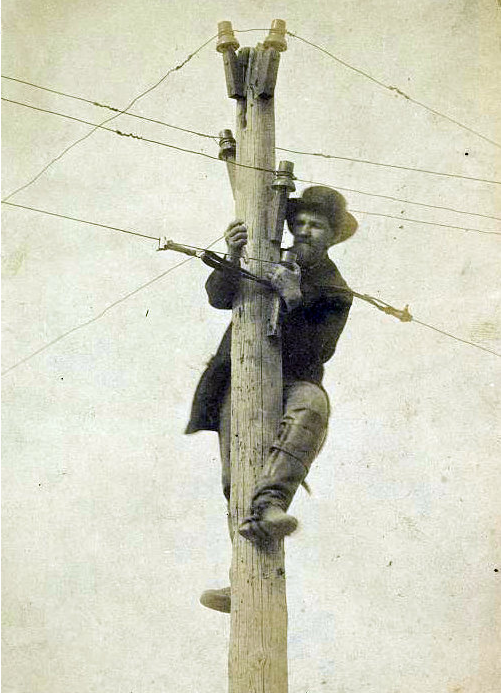Australia - Deputy Police Commissioner Nick Kaldas will front
a parliamentary inquiry into a long-running NSW police bugging scandal. Mr Kaldas was one of more than 100 police alledgedly spied on more than a decade ago as part of a covert internal corruption investigation.
(
more)
IL -
Illinois legislators provoked public outrage by reviving an eavesdropping law that the Supreme Court of Illinois struck down earlier in the year—in part because it prohibited citizens from recording public interactions with police. Sponsors and supporters of the new version of the law... insisted that the new statute would allow citizens to record police and that the public's concern was unwarranted. In fact however,
Illinois' new eavesdropping law is confusing and harsh. Although it does not ban all recording of police—the court took that off the table—it discourages it about as much possible
(
more)
 |
| R. Crumb prediction (1967) |
US -
A program used by U.S. and British spies to record computer keystrokes was part of sophisticated hacking operations in more than a dozen countries, security experts said on Tuesday, after former NSA contractor Edward Snowden reportedly leaked the source code for the program.
(
more)
Canada - On Monday, a new report was released, based on leaked documents from Edward Snowden, showing that
Canadian intelligence agencies—part of the Five Eyes spying conglomerate that includes the US, the UK, Australia and New Zealand—
partnered with UK spies to siphon sensitive data from thousands of smartphones by sniffing traffic between applications on the phones and the servers owned by the companies that made the applications. The
so-called Badass program is designed to sniff the normal unencrypted communication traffic of certain smartphone apps to glean location information, the unique identifier of the phone and other data that can help spies learn the identity of phone users, among other things. It can also be used to uncover vulnerabilities in a phone to help spies hack it.
(
more)
US -
Former U.S. nuclear scientist gets 5 year sentence for spying.
(
more)
US -
The Department of Justice is using an expanded license plate collection program -- originally intended to track drug crime -- to monitor ordinary citizens without criminal records, government documents reveal, raising questions about how widely surveillance data is shared among agencies and companies.
(
more)
NYC -
A contractor for Johnson & Johnson was arrested for placing a hidden spy camera in a company bathroom that recorded multiple people using the toilet, authorities said. Stephen Lewins, 42, of Brooklyn, was arrested for unlawful surveillance on January 23, after the pinhole camera was discovered in the restroom a week earlier, the NYPD said. A Johnson & Johnson employee
found the camera and an SD card hidden in a wall above a light switch inside the unisex bathroom Jan. 16. The company said it alerted the NYPD immediately.
(
more)
WI -
A ban on undercover videos on Wisconsin farms is being considered at the state Capitol. Though the bill is expected in the next week or so, laws known as “ag gags” have been proposed all over the country. According to the ASPCA, 26 state legislatures have looked at bans on covert video and pictures. That footage is typically used by animal rights groups to expose animal cruelty and mistreatment.
(
more)
Canada -
A cast member of CTV sitcom Spun Out has been accused of voyeurism after two women alleged they found hidden cameras in a Toronto condo. Jean Paul "J.P." Manoux, 45, was charged Tuesday by Toronto Police with one count of voyeurism. Last week, Police officers responded to a call from two women -- ages 27 and 25 -- at a Queen St. W. condominium building. The two women allegedly "discovered hidden cameras and video equipment connected to the Internet" in a condo they rented from a man, according to a police statement.
(
more)
 Now, the tempting sweet may have inspired a crime. Overnight last week, a thief stole the recipe for cruffins, and Mr. Stephen’s 230 other recipes, from binders in the bakery’s kitchen. Nothing else in the store was touched: not money, valuable baking equipment, an iPad or other computers...
Now, the tempting sweet may have inspired a crime. Overnight last week, a thief stole the recipe for cruffins, and Mr. Stephen’s 230 other recipes, from binders in the bakery’s kitchen. Nothing else in the store was touched: not money, valuable baking equipment, an iPad or other computers...










































